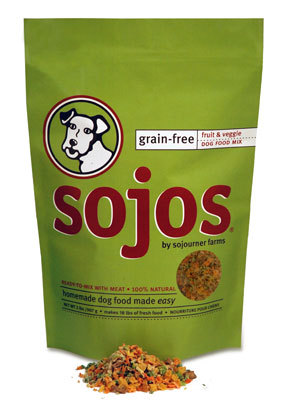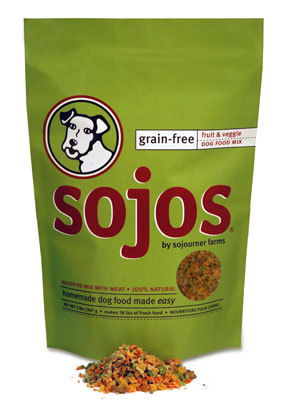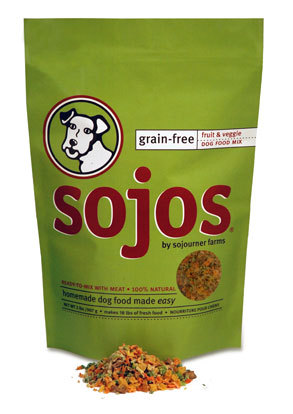QuestionHi Catherine,
I have just finished ready an excellent response from you to a lady that has a similar probem as I do.My miniature schnauzer has just been treated with Clavamox 125mg for 14 days for bladder/kidney stones.Just last night I realized that there is still blood in her urine so today we are off to the vet.My question is you mentioned in another article that an omega 3 fatty acid would be good to be added do a diet could you recommend one that you prefer and the dosage that you feel is right.You also mentioned cranberry extract is this also something that I should give her .She is about 16 pounds.Where are you located,I live in Nova Scotia and would love to be able to see you for a consult on home prepared diets my vet has changed my dog to Royal Canin Urinary SO and she really doen't care itand I also feel that home prepared is so much better for her.
Thanks in Advance,
Michelle
AnswerHi Michelle,
Nice to meet another Maritimer here! My mother's family is from Parrsboro and I am planning to move to the Halifax region in about two years. It's one of the most beautiful places on earth, Nova Scotia - but I digress! I wish I was there now. :)
Now your little dog is a breed prone to oxalates - assuming this is the type of stone she's had - you do need a specific diet if you plan to go home made. If this is the case, you should avoid cranberry, a supplement more useful for preventing recurrent bacterial infection, which can be associated with struvite crystals. Oxalates are naturally occurring substances found in many foods; some contain much higher levels than others and it's best to avoid feeding these if you can.
http://www.whfoods.com/genpage.php?tname=george&dbid=48
I like this site, a little info to help you figure out where oxalates are found.
Of course, there are other aspects to controlling uroliths with diet, but if the stones removed were oxalates (and they can be both oxalate and struvite) then cranberry isn't a good idea.
Fish body oils, on the other hand, are a good idea. (Again this is general advice, and if we do a consultation I cn be more specific as I will know a lot more about your dog). The distinction you need to make here is between fish BODY oils - which supply essential fatty acids but no vitamins - and cod liver oil, which is an abundant source of Vitamins A and D. I often use cod liver oil in a home made diet if I need to add these vitamins, but theoretically they can build up to toxic levels in the body, so if I only want to add the fatty acids (EPA and DHA, or Omega 3s) I use a product derived from the fish alone, not the liver. My own favourite product uses herring, anchovies and I believe sardines: it's made by natural Factors and is called RxOmega3. I see it in most local healthfood stores, or you can order online here:
http://www.iherb.com/store/ProductDetails.aspx?c=Herbs&pid=NFS-03549
RxOmega3
There is a lot to like about this product; it's pharmaceutical grade, so very pure (some fish oils have been shown to contain common ocean toxins such as mercury and pcbs) it packs a lot of EFA into each capsule, and it's not flavoured orange or lemon, which humans seem to prefer but not so for canines! I'd use one per day for a 16 lb dog, and I like to increase Vitamin E when increasing the level of PUFA (that's polyunsaturated fatty acids) in the diet. Use one human grade, 100 IU natural source VitaminE along with the fish oils.
If you wish to talk more about a consult, please contact me at catlane@thepossiblecanine.com - you might want to look at my site first, too: www.thepossiblecanine.com. I will be updating it soon, but I tend to be overbooked a lot <g> so I may not get the new articles and info up for a week or so.
Services are a they stand for the time being.
Hope this helps a little, and I look forward to working with you, should you so decide.
Catherine

 Possible colitis in corgi ; flagyl canine dosage;
QuestionI adopted a female 17 month old corgi. She has
Possible colitis in corgi ; flagyl canine dosage;
QuestionI adopted a female 17 month old corgi. She has
 food - canine feeding - picky dog recipe:
Questionwe found a king charles royal cavalier, has no
food - canine feeding - picky dog recipe:
Questionwe found a king charles royal cavalier, has no
 Dog food to prevent Struvite Bladder Stones
QuestionHello,
My 2 year old, female ShihTzu just had
Dog food to prevent Struvite Bladder Stones
QuestionHello,
My 2 year old, female ShihTzu just had
 Collapsed Trachea Yorkie; pet Nurse Marie can help yorkies...!
Question
Me and toby
Hey I have a yorkie named toby and
Collapsed Trachea Yorkie; pet Nurse Marie can help yorkies...!
Question
Me and toby
Hey I have a yorkie named toby and
 English Bulldog Food Allergies
QuestionHi,
Our English Bulldog was on Blue Buffalo Chi
English Bulldog Food Allergies
QuestionHi,
Our English Bulldog was on Blue Buffalo Chi